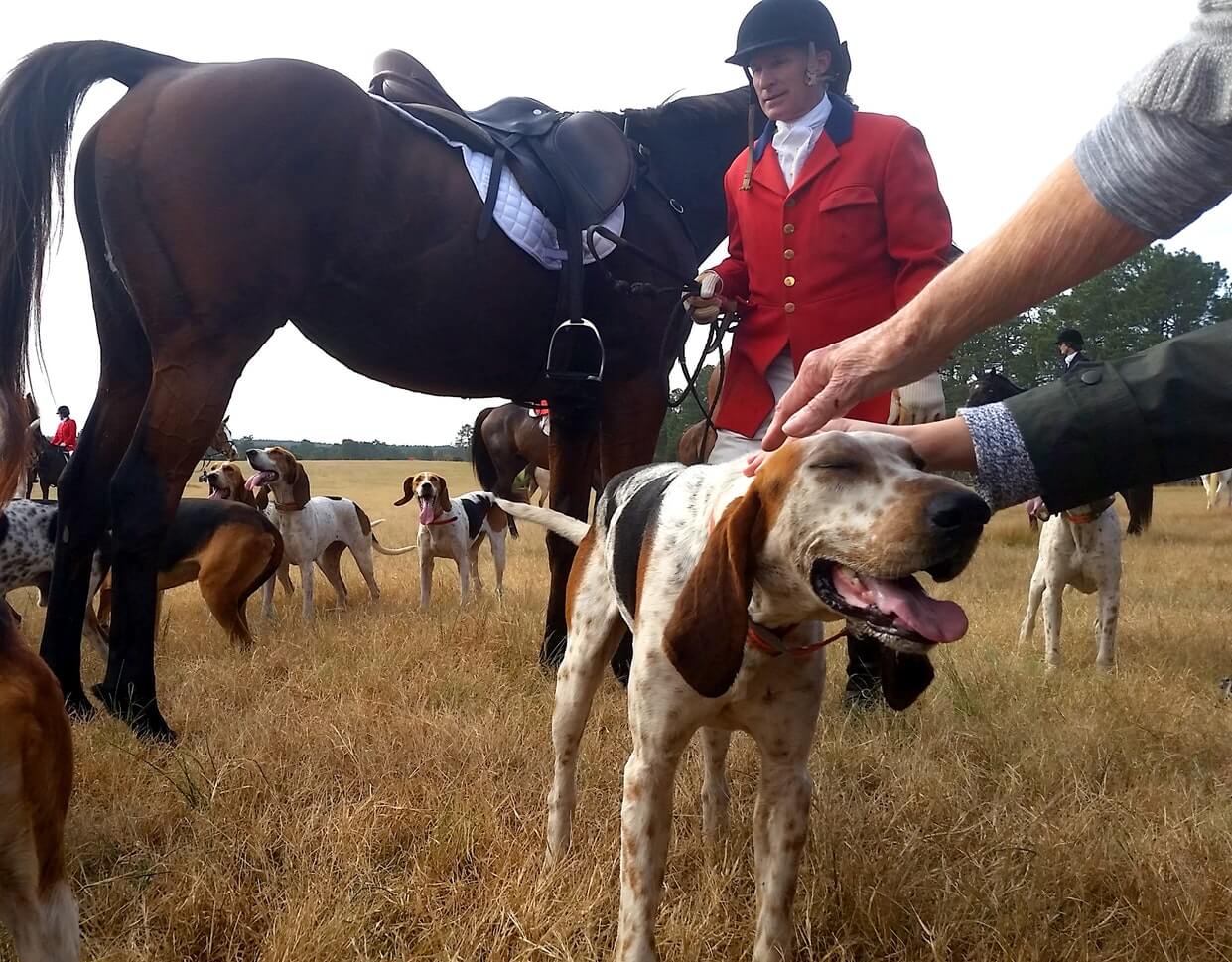
Just reading that question out aloud in this day and age would bring horror to most people. However is it true? Let me say at the outset, that the statement today is false but wasn’t before the 1940s in the USA. Unfortunately, back then horse meat was a staple ingredient for many brands of canned dog food. So much to the extent that dog food companies had their own horse meat suppliers to keep up with the demand! Of course, times have changed, but much of that trend has followed us even to date.
Table of Contents
Why Did It Stop?
Surprisingly horse meat was removed from dog food back in the day, just because we had world events like World War II where an increased supply of horses was needed for the war effort. After the war, horsemeat found its way to dinner tables because there were massive shortages of “normal” meat. However, this became increasingly unpopular politically and the American government at the time under Truman thought better of it. This, plus the first signs of dry pet food production meant that the use of horse meat for pet consumption came to an end in the USA.
Will There Will Be a Return?
The short answer is a definite no. Dog food companies are well aware that horses are now seen as pets. That like domestic pets, they have distinct personalities almost human-like. Very true but pigs are becoming quite the pet to have because they are so smart and actually very clean. Venture down to your local supermarket and grab a pork roast, chops or ribs and no one cares.
The fact that Horse Racing is seen worldwide as the sport of kings, and therefore has a massive following promotes a non-return So the stigma or reputation that a pet food company would inherit with a return to horse meat based dog food would undoubtedly affect their sales or upside. That is undoubtedly true, but for as long as history has been recorded, the eating of horses and even dogs have been a norm when food is hard to find.
It is true that horse knackeries exist, where in Australia alone, some 30,000 to 40,000 horses are slaughtered every year. However, these are generally for human consumption in European countries like Italy, France, and Russia. There are also unsubstantiated reports that three slaughterhouses were shut down in 2007 in America but no real conclusive proof. However, there is no law that stops horses from being sold and sent overseas from the USA for human consumption. These horses generally end up in slaughterhouses in countries like Canada and Mexico.
Horse Meat and Human Consumption
To the general public, horse meat would probably sound like a pretty unappetizing meal option. However, it is one of the best forms of protein available as it has half the fat of beef, low in cholesterol with high levels of iron and vitamin B.
In Japan, it is considered a delicacy. It is on the menus as basashi or horse sashimi as a tuna alternative.
Horse Meat Now A Political Football
It is no surprise that the exportation of horses has become a political issue under the Trump Administration in the USA. Instead of continuing to provide the budget that the Bureau of Land-Management has been allocated for the care of wild horses, he has proposed that it be cut. Instead, the money saved should be spent on lifting the restrictions that stopped them being sent to dealers that supply neighboring country abattoirs.
As far as we can tell, this motion by Trump is a political football, that Trump insiders see as a “dropped catch” and therefore has massive political implications. President Truman had the same political battles back in the day when his political opponents referred to him as “Horse Meat Harry.”
The Evanger Controversy
This involved the pet food company Evanger, where traces of horse DNA, were found in their Hunk of Beef dog food. There were also traces of pentobarbital, a drug that caused poisoning in dogs, with one dog a pug passing away. As a result, the pet food had an instant recall. Such an event is bad news for any re-introduction of horse meat in dog food.
What is forgotten here though, is that the recall was made by Evanger themselves, not the FDA? This is a pertinent difference that must not be ignored.
The Animal Cruelty Question
Of course, the animal activist lobby is “up in arms” when the killing of horses is mentioned. It is not so much in relation to using them as a source of food. The same argument can be used for the killing of “normal” food sources like sheep, cows, and chickens.
Instead, it revolves around the fact that as big animals, they are not stunned first, so the killing process is considered barbaric. However, having seen a racehorse break a leg while racing, the veterinarian will put up some kind of sheet to avoid public view. And then yes, he shoots it! So much for the animal cruelty question. In Australia, we had a significant outbreak of the Hendra Virus that killed not only animals but also humans. As a result, the spring racing carnival was canceled, and the number of infected horses found was staggering. The only way to control the virus was, and you guessed it, the shooting of infected horses.
Knackeries Versus Abbatoirs
Yes, there is a difference and a most important one. Horses that are killed in abattoirs are those that have been exported overseas for human consumption.
These horses are generally 7 years and under, as the meat quality needs to be of a high standard or in good health. In contrast, the knackeries target horses that have been neglected, sick or of senior age.
Conclusion
This article has given enough reasons as to why the dog food we offer our pets today is free of any traces of horse meat. Times have changed because of public opinion. In the USA, pet care is a significant industry. Dogs are allowed in places that previously would be frowned upon. These include “doggie” friendly restaurants, hotels and even airplanes.
You May Also Interested In:
- How To Change Dog Food Quickly
- 17 Symptoms of Dog Food Allergies
- Does Dog Food Go Bad?
- Should Dog Food Be Grain Free?
- Signs of Dog Food Poisoning
- All You Need to Know About Dog Food Transition
- How Dog Food is Made?
Share this:
- Click to share on Twitter (Opens in new window)
- Click to share on Facebook (Opens in new window)
- Click to share on Tumblr (Opens in new window)
- Click to share on Pinterest (Opens in new window)
- Click to share on Reddit (Opens in new window)
- Click to share on Telegram (Opens in new window)
- Click to share on WhatsApp (Opens in new window)
- Click to print (Opens in new window)
